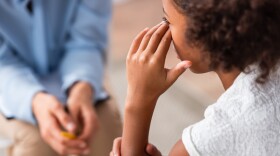Caregivers should be on alert for stressors among youth during the summer when children are spending more time at home.
Adverse Childhood Experiences often predict poor physiological or mental health outcomes in adulthood.
In Michigan, 63% of high school students have experienced at least one or more such experiences 15% have experienced four or more, making kids more likely to experience depression, anxiety and higher suicide rates.
Data show almost half of those with four or more Adverse Childhood Experiences have contemplated suicide in the last year.
Kelli Bowers, with the Michigan League for Public Policy, says Michigan's struggle with mental healthcare staffing is a problem, given there is one provider for every 332 people in the state.
Kelli Bowers, Kids Count data analyst for the Michigan League for Public Policy, said Michigan's struggle with mental health care staffing is a problem, given there is 1 provider for every 332 people who could need assistance.
"Many times ACEs are happening in families that have a hard time getting their basic physical needs met," Bowers observed. "It's really important that children are in stable environments and homes. That means that parents and caregivers have access to just their basic physical necessities like childcare, nutritious food, livable wages, healthcare those kinds of things."
Bowers explained it is a two-generational approach, and called on legislators to help parents get access to their basic physical necessities so focus can shift to emotional healing.
The Centers for Disease Control and Prevention stressed family support is key to helping kids who experience Adverse Childhood Experiences.
Kelsey Sala-Hamrick, senior research scientist for the Michigan Public Health Institute, encouraged people who have had such childhood experiences to stay hopeful.
"Just because someone experiences ACEs does not mean that they are going to develop poor health outcomes," Sala-Hamrick cautioned. "We have lots of evidence based programs and ways to support people. There are lots of protective factors that can lead people to being able to live healthy, happy, resilient lives where they can achieve whatever they set out to achieve."
The Michigan ACE Initiative offers a training program to recognize trauma signs early on, potentially changing a child's life.





